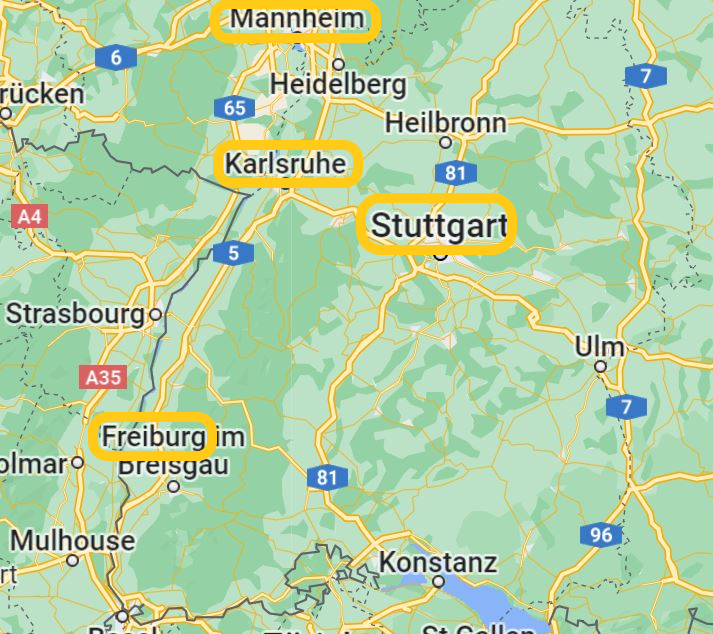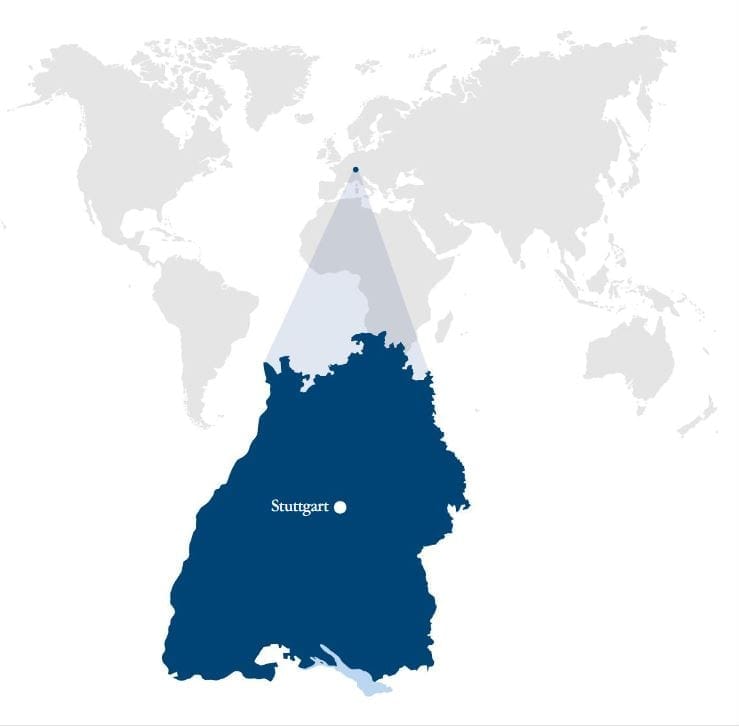Situated in Germany's southwest, Baden-Württemberg borders Rhineland-Palatinate, Hessen, Bavaria, Switzerland, and France. With a population of around 11.3 million and a landmass of 35,751 sq km (13,804 sq miles), Baden-Württemberg is comparable to Belgium. The state has the second highest employment rate in Germany (Bavaria has the highest). Its major cities are Stuttgart, Mannheim, Karlsruhe, and Freiburg. Heidelberg is ranked no.5 by population but is so significant in life sciences that we covered it separately on 30 June 2022.

The region is renowned for its academic institutions. Heidelberg University, Karlsruhe Technological Institute, Eberhard Karls University Tübingen, and the University of Freiburg rank among Germany's top science universities. They are instrumental in fostering innovation across multiple sectors including AI, mobility, and life sciences.

Medtech leads the way
The medtech sector is very strong, employing over 50,000 people in the state and generating an annual turnover of c.€14 billion. The largest sectors are surgical instruments, therapeutic systems and devices as well as implants and exoprostheses (a prosthesis which can be put on and taken off the body).
The pharma sector is roughly half the size in terms of employment and turnover and features a number of renowned companies such as Boehringer Ingelheim, the generic drug's manufacturer Ratiopharm, and Roche Diagnostics Ltd.
Biotech is the smallest sector of the three but nevertheless sizeable, employing over 18,000 people and generating €4 billion (£3.4 billion) in revenue.




